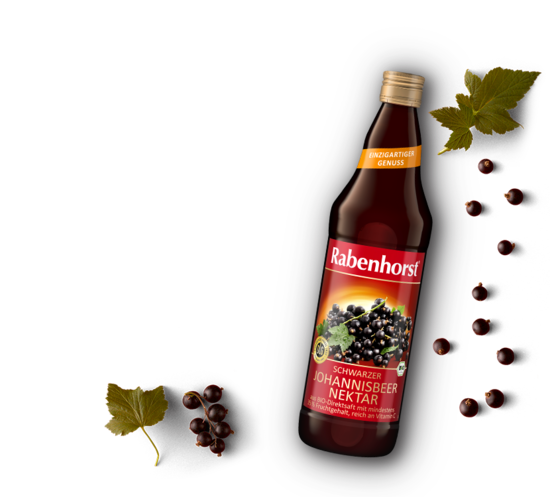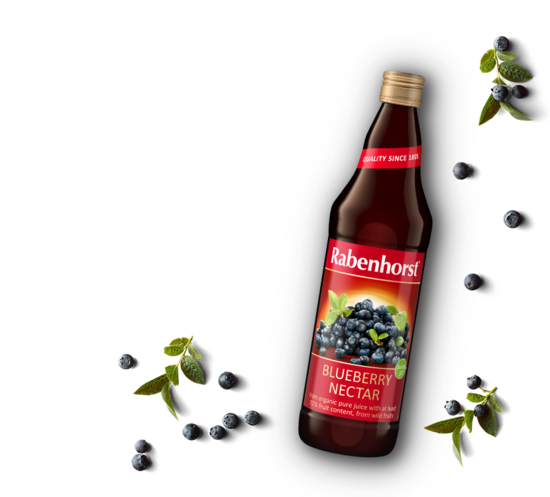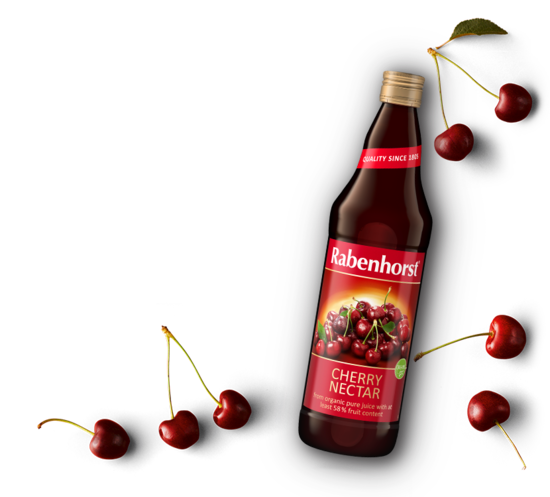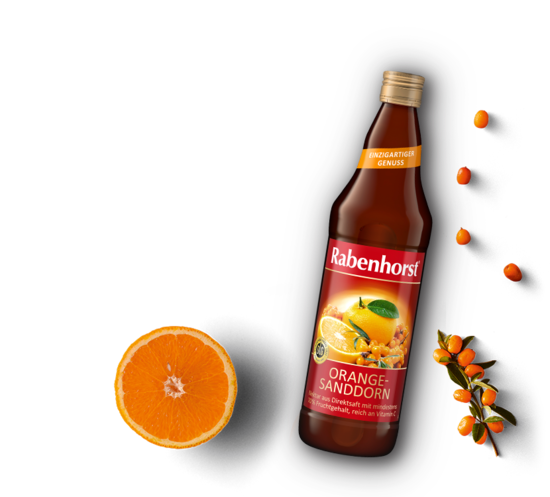
Nectars
Enjoy good things from nature - with high-quality fruit nectars made from pure juice
Our delicious, high-quality nectars are made from carefully selected fruits of the best quality. The majority of our nectars are processed and bottled in our own press house to produce an incomparable, aromatic nectar of the highest quality. They are produced without the addition of any colourings or preservatives. In the production of our nectars, we focus on a high fruit content for full enjoyment.
FAQ
What is the difference between a nectar and a pure juice?
A fruit nectar is a Combination of fruit juice or fruit pulp with water and types of sugar, such as honey. A fruit juice always has a fruit content of 100 %.
How much fruit is in fruit juice nectar?
While a fruit juice always has a fruit content of 100 %, nectars only have certain minimum fruit contents. These vary depending on the fruit, whereby the following criteria are decisive:
- Fruits whose juice is suitable for immediate consumption (e.g. apples and oranges): nectar must have at least 50 % fruit content.
- Fruits with acidic juice which is not suitable for immediate consumption (e.g. limes, blackberries and blackcurrants): nectar must have between 25 and 50 % fruit content, depending on the fruit.
- Fruits with a lot of pulp (e.g. apricots): nectar must have at least 25 % fruit content.
In order to meet our high quality standards, however, the fruit content of our Rabenhorst nectars always exceeds these legal requirements. Our nectars contain a higher fruit content for a special and natural taste experience - for example, our blueberry nectar contains 70 % fruit content, although 40% would be required by law.
Can any fruit be processed into nectar?
In principle, any fruit from which juice can be made can also be processed into nectar. There are the following reasons for not making pure juice with 100 % fruit content from fruit, but rather nectar:
- The fruits are very acidic, such as currants and wild blueberries.
- The fruits have a high amount of pulp, such as apricots.
So whether we at Rabenhorst process a fruit into juice or nectar depends on its acidity and the amount of its pulp. All our nectars are always produced on the basis of high-quality pure juices and the exact fruit content is declared on the bottle label.
Where does the term nectar come from?
The word "nectar" comes from Greek mythology. Nectar was considered the drink of the gods. Nowadays we enjoy nectars for their excellent taste. At Rabenhorst we offer nectars from five delicious types of fruit.
The production of nectar
Our nectar is always produced on the basis of high-quality pure juice. This is mixed with water and added sugar. As a matter of principle, we do not use any concentrate to produce our juices and nectars. This allows us to preserve the valuable natural ingredients of the fruit as far as possible and offer you our usual high quality.
Nectar is versatile
Of course, you can enjoy our delicious juice nectars pure. However, there are many other ways to use them. Here you will find inspiration on what you can conjure up from our nectars:
- Homemade smoothies
- Fruity cocktails - with and without alcohol
- Refreshing iced tea
- Fruit punch with fresh fruit
- Enjoy porridge for that extra kick of flavour
- Homemade fruit gruel made from different types of fruit
- In cakes, tarts and muffins for fruity and juicy pastries




